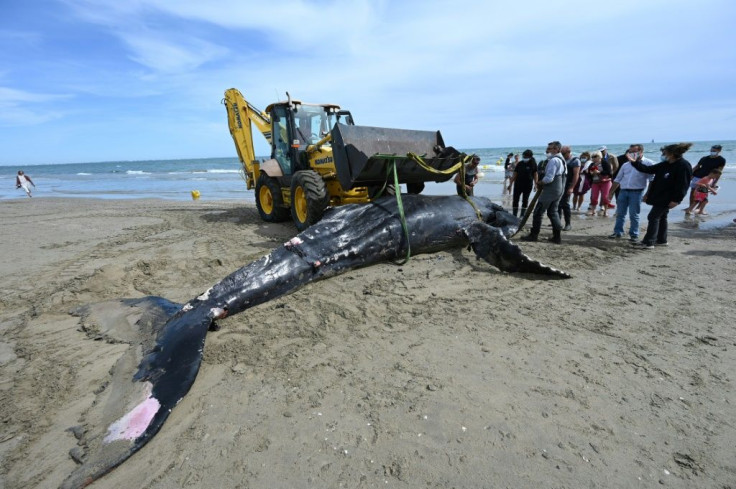Massive Whale Washes Up On Remote Beach, Cause Of Death Under Investigation
A massive whale washed up on a remote beach in the Philippines, raising questions as to how the sea creature died. D’Bone Collector museum owner Darrell Blatchley messaged Yahoo News Australia about his find saying that a necropsy was performed to determine the cause of death.
The whale was so heavy that it was almost impossible to move owing to its sheer weight. Due to this, Blatchley had to investigate the animal while the tide was out.
Photos of the dead whale sent to Yahoo News Australia showed Blatchley's team dwarfed next to the carcass as they worked in the water, which was knee deep. The skin of the creature appeared to have decayed.
Blatchley also faced trouble communicating as the phone reception in the secluded Jose Abad Santos, south of Davao City, was extremely weak. He will reportedly continue the investigation until Saturday to find out if plastic played a role in the massive marine creature's death or if it was old age.
According to reports, the whale showed signs of old age. Sperm whales typically live for about 70 years. “The teeth are worn down, the size of the whale is near maximum," he said via text message.
Blatchley proactively works towards exposing human practices that lead to dolphin and whale deaths. In 2019, he exposed a case in which the digestive system of a dead whale that had washed ashore in the Philippines contained nearly 90 pounds of plastic, also almost half of it comprised of bags.
“This whale had the most plastic we have ever seen in a whale. It’s disgusting,” he said at the time. According to Blatchley, starvation and dehydration caused by the mass of plastic in its stomach and intestines likely contributed to the whale's death.
This year, the United Nations agreed to prepare a worldwide plastics treaty to help reduce their impact on the planet.
"If we get this right – if we win the battle against plastic pollution – it will not only be a tangible victory for people and planet, but a clear example of how the United Nations is relevant to the lives of citizens around the world," María Fernanda Espinosa, former President of the United Nations General Assembly said.






















